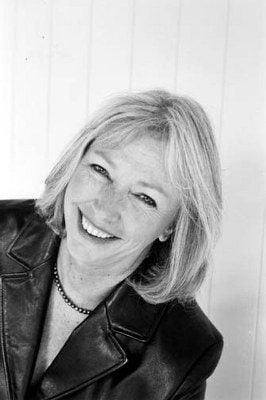Lizzie
Borden
by
Elizabeth Engstrom
Genre:
Historical Mystery, Thriller
Did
she do it?
A
hundred years ago, it was the Trial of the Century. A young woman
stood accused of brutally murdering her father and stepmother in a
crime so heinous that it became a benchmark in human tragedy.
A
hundred years later, the Lizzie Borden case still resounds in the
imagination. There are those who staunchly defend Lizzie’s
innocence while others vehemently declare that she did it, and that
the murder was justified.
In
Elizabeth Engstrom’s brilliant novel, the dark psychology of the
Borden household is laid bare. Lizzie, her sister Emma and their
parents Andrew and Abby Borden, are sharply illuminated—as are the
paranoia and concealed hatred that secretly ruled the family.
Domestic violence and dysfunctional families are not inventions of
modern times.
“Every
door in the Borden house is metaphorically locked, and each room holds
the terrible secrets of its occupant…Engstrom skillfully and subtly
builds a psychological plot, moving the reader inexorably toward the
anticipated savage denouement.” —Publishers Weekly
Kathryn answered the door dressed in a stunning wine colored gown, trimmed in black lace. A white cameo gleamed at her throat, her hair was done up with a twist and it shone in the gaslight. She even had a touch of lipstick on, Lizzie noticed, and some rouge.
Lizzie hugged her hostess, and the first feeling of inadequacy of the evening came over her. If there was one thing about Kathryn that truly intimidated Lizzie, it was Kathryn’s diminutive stature. Tiny, she was, almost like a fairy. Lizzie felt like a moose next to her.
Kathryn kissed her lightly on the lips, then chattered away gaily as she took Lizzie’s cape and hat, and the two women went into Kathryn’s correctly appointed sitting room. Lizzie glanced into the dining room on her way past, and saw the table set for two. Wonderful. An intimate evening.
They shared a cup of tea and talked first about the good work the WCTU was accomplishing, then gossiped politely about some of the members. Lizzie became more and more relaxed. When Kathryn left the room to check on the progress of dinner, Lizzie had the profound realization that Kathryn had invited her to her home for no other reason than she enjoyed Lizzie’s company. There was no committee work to be done, there was not a dinner party with an odd number of guests, there was no other reason. Kathryn had invited Lizzie because she wanted to share a dinner with her.
Lizzie blushed in spite of herself and sipped her tea.
Kathryn returned and they talked of art, a subject Lizzie knew as little about as Kathryn was well-versed. They talked Fall River politics for a moment, then general Fall River news and personalities, and then it was time for dinner.
Kathryn had roasted two squabs and served them with an orange sauce, small freshly-dug carrots that she’d overwintered right in the ground, and a portion of goat cheese that she’d purchased last Saturday at the market. This spawned a discussion of cooking, another thing in which Kathryn was accomplished and Lizzie not.
But the holes in Lizzie’s training did not confuse her this night with holes in her personality. Kathryn’s life had taken different directions, and had led her down different paths. Lizzie did not feel more or less fortunate (except in looks and body) for once. She just felt different, and for the first time, instead of dwelling on her own insufficiencies, she reveled in Kathryn’s accomplishments and queried enthusiastically about her life.
After dinner (Lizzie ate her entire bird down to the bones; Kathryn barely ate a half breast), Kathryn gave Lizzie a thorough tour of her kitchen, and then her artworks, which spread about the house. Lizzie had long admired the art which hung on Kathryn’s walls, but as she’d only been at the house during a meeting, she’d never had opportunity to view each one in its glory. Each painting, sketching and drawing had a little story about where it came from, the artist, and how and where Kathryn had acquired it. Lizzie was totally charmed with this little tiny, beautiful woman and her enthusiasm.
Eventually, the tour landed them back in the sitting room, where Kathryn sat on the settee next to Lizzie.
They talked about Europe, and compared notes on what they had seen in common, and as Kathryn poured a fresh cup of tea, her hand touched Lizzie’s, and it stayed there.
Lizzie was surprised at how warm it was, how soft and warm, and without thinking, she took Kathryn’s tiny hand in both of hers. Emma’s hands were harsh and bony, Abby’s hands were fat and bloated, Father’s hands were horny and hairy. This little perfectly manicured hand was warm and gentle. Tender. Lizzie turned it over to look at the palm, ran a finger down the center of it, and when she looked up, Kathryn had a most peculiar look in her eyes.
T he expression on Kathryn’s face reminded Lizzie of days long ago when she would sit in the window seat at the farm and look out the window, dreaming of things to be when she finally became an adult. She longed to be a housewife with a dozen children. She longed to have a protector, a provider, one she could kiss and hug, one she could sleep next to on a cold night. She longed to make her own decisions and not be driven instead by a ruthless older sister, she longed. . .
That was the expression in Kathryn’s eyes. Longing.
Lizzie flushed and looked again at the tiny hand she held in her own.
“Lizzie?” Kathryn spoke so softly, that even in the silent room, Lizzie was not sure that she had heard. She was suddenly shy, and almost afraid. Her heart pounded louder than Kathryn’s tiny word. Eventually, she looked up into that beautiful face, and Kathryn’s lips were gently parted, and she moved closer and closer, until Lizzie could smell her hair as well as see right through it, and she could smell the closeness of Kathryn, freshly bathed and powdered. She could smell Kathryn’s breath, warm, scented with tea and cinnamon, and then Kathryn’s lips were on her own, soft, so soft.
T hen she was gone, and Lizzie found her eyes closed, so she opened them, and saw Kathryn, who was flushed and laughing, both of them embarrassed, and the small hand slid out from between Lizzie’s and helped the other hand hold the trembling teacup.
Elizabeth
(Liz) Engstrom grew up in Park Ridge, Illinois (a Chicago suburb
where she lived with her father) and Kaysville, Utah (north of Salt
Lake City, where she lived with her mother). After graduating from
high school in Illinois, she ventured west in a serious search for
acceptable weather, eventually settling in Honolulu. She attended
college and worked as an advertising copywriter.
After
eight years on Oahu, she moved to Maui, found a business partner and
opened an advertising agency. One husband, two children and five
years later, she sold the agency to her partner and had enough seed
money to try her hand at full time fiction writing, her lifelong
dream. With the help of her mentor, science fiction great Theodore
Sturgeon, When Darkness Loves Us was published.
Engstrom
moved to Eugene, Oregon in 1986, where she lives with her husband Al
Cratty, the legendary muskie fisherman, and their Duck Tolling
Retriever, Jook. Liz holds a BA in English Literature and Creative
Writing and a Master of Arts in Applied Theology, both from
Marylhurst University. A recluse at heart, she still emerges into
public occasionally to speak at a writers conference, or to teach a
class on various aspects of writing the novel, essay, article or
short story. An avid knitter and gardener, she is on faculty at the
University of Phoenix and is always working on the next book.
Follow
the tour HERE
for exclusive excerpts, guest posts and a giveaway!









No comments:
Post a Comment